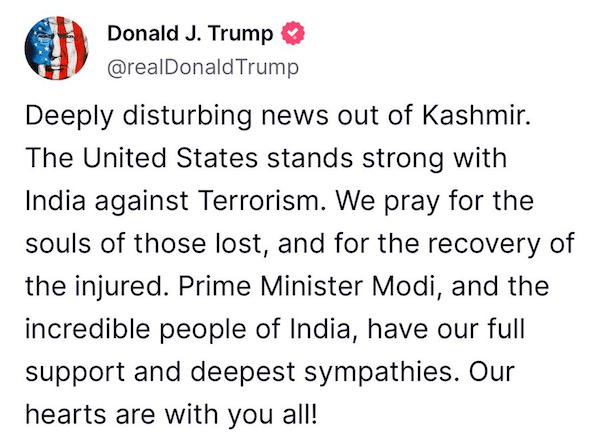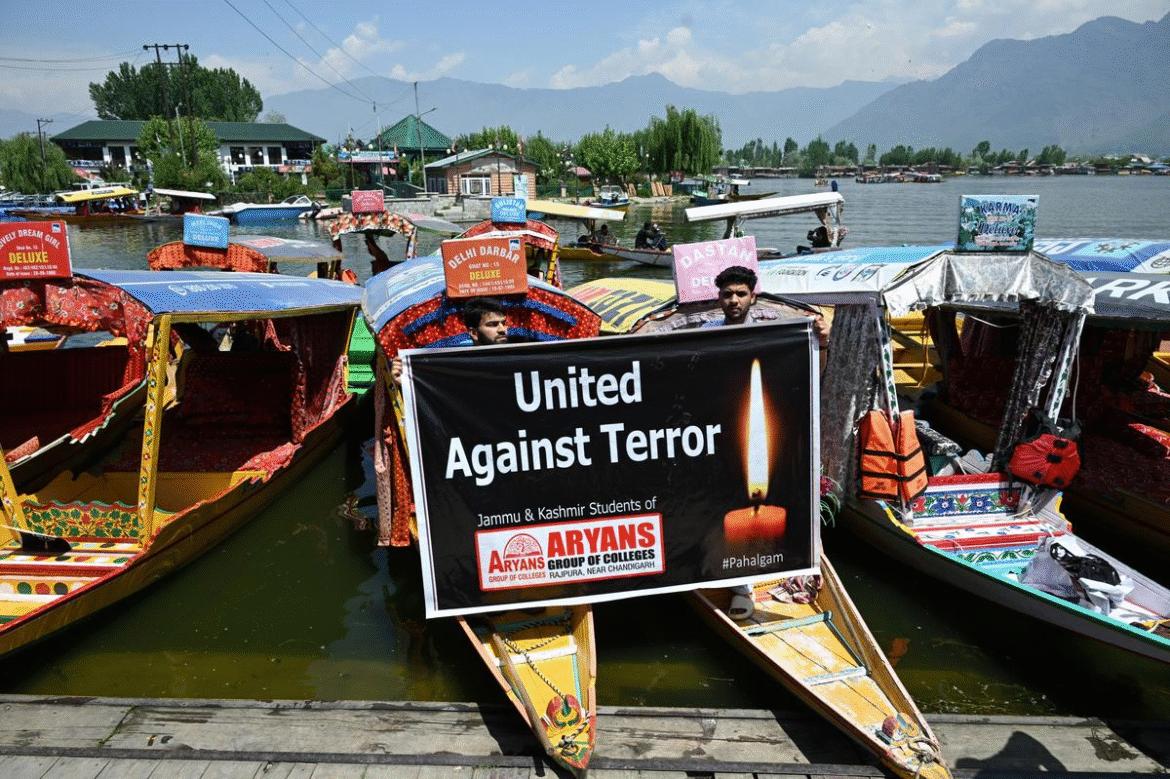AI Generated Summary
- The recent terror attack in Pahalgam, Jammu and Kashmir — a brutal assault that claimed the lives of at least 26 innocent people, many of them tourists — has sparked such a moment.
- India, long a frontline state in the battle against terror, has often borne its burden with resolve but also with a sense of loneliness on the global stage.
- And in a particularly poignant show of solidarity, Israel’s Prime Minister Benjamin Netanyahu called the attack “barbaric,” affirming Israel’s steadfast friendship and shared resolve to counter the scourge of terrorism.
In a world often divided by politics, economics, and ideology, tragedy sometimes forges unlikely unity. The recent terror attack in Pahalgam, Jammu and Kashmir — a brutal assault that claimed the lives of at least 26 innocent people, many of them tourists — has sparked such a moment. The international reaction has been swift, unequivocal, and heartening: an outpouring of condemnation against terror and an emphatic embrace of solidarity with India.
From Washington to Riyadh, from Brussels to Beijing, world leaders have spoken with one voice. U.S. President Donald Trump, standing shoulder to shoulder with Prime Minister Narendra Modi, offered “unwavering solidarity” and pledged full American support in bringing the perpetrators to justice.

Russia’s President Vladimir Putin, too, denounced the attack as a “brutal crime without justification,” reaffirming Moscow’s enduring commitment to fight terrorism alongside India.
✉️ President of Russia Vladimir Putin extends condolences to President of India @rashtrapatibhvn and Prime Minister of India @narendramodi over the terrorist attack in Pahalgam.
— MFA Russia 🇷🇺 (@mfa_russia) April 22, 2025
✍️ This heinous crime can have no justification. pic.twitter.com/caAcAqAFcu
This time, even geopolitical rivals found common ground. China expressed “deep shock” and sympathy, while European Union President Ursula von der Leyen called the attack “vile,” pledging Europe’s solidarity. Nations with their own scars from terror — France, the United Kingdom, Italy, Germany, the Netherlands — were quick to rally to India’s side, underscoring that terrorism knows no borders and demands a global answer.
Shocked by the attack in Pahalgam and condemn. Deep condolences for the victims and sincere sympathies to the injured and the bereaved families. Oppose terrorism of all forms.
— Xu Feihong (@China_Amb_India) April 23, 2025
The response from the Muslim world has been equally powerful. Qatar, Saudi Arabia, the UAE, Iran, Jordan, and Egypt, among others, have unequivocally condemned the violence, rejecting terror in all its forms. Their collective voice matters greatly; it shatters the narrative extremists often try to spin, falsely cloaking their brutality in religion or grievance.
Asia-Pacific partners like Australia and Japan, as well as regional neighbors like Nepal, Sri Lanka, Singapore, and Mauritius, all joined in mourning and support. And in a particularly poignant show of solidarity, Israel’s Prime Minister Benjamin Netanyahu called the attack “barbaric,” affirming Israel’s steadfast friendship and shared resolve to counter the scourge of terrorism.
🚨 Italian Prime Minister Georgia Meloni called Prime Minister Modi to express Italy's full support and solidarity with India following the Pahalgam terror attack that claimed 26 lives. She emphasized that India and Italy would collaborate to enhance counter-terrorism efforts.… pic.twitter.com/xltSedWlD9
— The Tradesman (@The_Tradesman1) April 25, 2025
Even the often-cautious corridors of the United Nations echoed with unambiguous condemnation. Secretary-General Antonio Guterres called for those responsible to be held accountable, recognizing that justice must not be a passive hope but an active pursuit.
There is a profound message in this chorus of voices. Terrorism, by its nature, seeks to isolate and destabilize. It aims to sow fear, pit communities against each other, and weaken the bonds between nations. But the reaction to the Pahalgam attack tells a different story: that our shared humanity is stronger than the forces that seek to tear it apart.
India, long a frontline state in the battle against terror, has often borne its burden with resolve but also with a sense of loneliness on the global stage. Today, that loneliness is being replaced by a determined, collective front. Words of solidarity must now translate into concrete actions — deeper intelligence-sharing, stronger international cooperation, and a firmer global consensus that no cause can justify the slaughter of innocents.
The people of Pahalgam — the grieving families, the injured survivors, the traumatized witnesses — deserve justice. But beyond that, they deserve a world where such atrocities are no longer tolerated, excused, or normalized. If the unity shown in the aftermath of this tragedy can be sustained and strengthened, then out of unimaginable pain may yet come a new hope: a truly global commitment to defeating terror, together.




